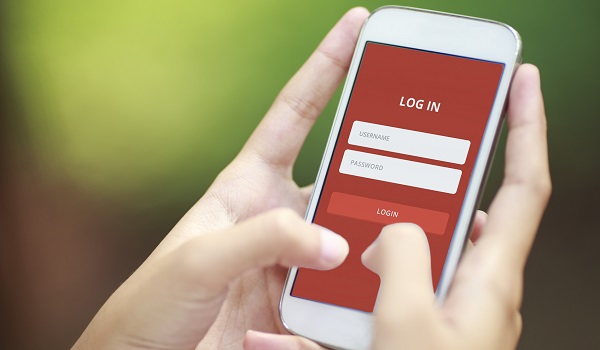Keep Hackers Out of Your Account
Americans are using their smartphones for banking at an increasing rate. According to the consulting firm AlixPartners, in the last quarter of 2013, approximately 82% of 18-25-year-olds owned smartphones and 61% of that group used mobile banking apps. The numbers are likely rising in 2014.
As a result of this trend, hackers are targeting mobile devices more frequently. Here are several common-sense ways to protect your mobile data against theft and misuse.
1. Apply Passwords and Manage Them Wisely – These are the simplest steps to securing online accounts, yet a startling number of people refuse to take them. Apply for password protection, use difficult passwords, and change them frequently.
2. Use Mobile Devices in Secure Areas – Whenever possible, restrict the use of your mobile accounts to areas with secured Wi-Fi systems. This takes away a lot of the convenience of using smartphone banking apps – but you must decide on your own tradeoff between convenience and security.
3. Enable All Security Features – The newest lines of smartphones have higher levels of built-in security features. For example, the fingerprint reader on the iPhone 6 makes it extremely difficult for a pickpocket or a thief of opportunity to access your data.
4. Beware of Suspicious Apps/Downloads – Not all apps are vetted and approved for use like those in the Apple App Store. Open platform devices (or jailbroken iPhones) can easily download any app, and those apps can contain malware. Only download apps that have been thoroughly reviewed and come from a trusted source.
5. Keep Your Software Updated – Developers and hackers are in a constant battle over security. Hackers often have the advantage, leaving software developers in a reactive mode to fix bugs and security gaps. New software revisions are constantly being released to patch security holes, so it is important to check for new versions frequently.
Yes, password protection is a hassle and tough passwords are difficult to remember. Try blending by mixing odd characters into a familiar word or character string. Write them down in a safe place if you have to, but try your best to commit them to memory. Do not re-use your passwords between sites.
Both Apple and Android have “Find My” apps that allow you remotely locate your device and lock the device… and in the case of Apple, you can remotely wipe the contents via iCloud if it comes to that point. However, you have to make sure the system is enabled to allow its use in a time of crisis.
Older systems may have lesser protection such as the simple 4-digit screen lock, but with whatever device you have, make sure you understand and use the security features that you have available.
Even Apple phones can be attacked indirectly. Fake text messages and e-mails with links can trick users into downloading a false app that replaces your existing app and allows outside access to your account information. CNET reports that Apple devices running iOS 7 or above are vulnerable to this attack.
The bottom line is to avoid any suspicious downloads or links you cannot confirm. If you discover your software has vulnerabilities – as all software eventually does – read on.
There is one big caveat – make sure your update is coming from a reputable source. Phishing alerts can be very convincing, especially to the novice. Check the corresponding product website separately to verify that a security patch is real.
Don’t let convenience lull you into false security. Take common-sense steps to protect your data, or prepare to fund some hacker’s next shopping trip.
This article was provided by our partners at MoneyTips.com.

Leave a Reply